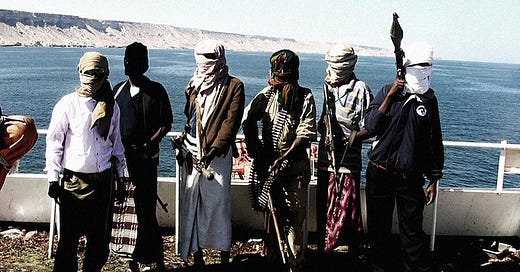The Doc Option: Before ‘Captain Phillips’ Watch ‘Stolen Seas’

Somali piracy is a hot topic of late. Captain Phillips, directed by Paul Greengrass and starring Tom Hanks, is only the latest of several movies to come out this year alone that deals with the subject. Danish import A Hijacking also made waves with its release, while the subject of today’s Doc Option didn’t leave much of an impression when it quietly pr…
Keep reading with a 7-day free trial
Subscribe to Nonfics to keep reading this post and get 7 days of free access to the full post archives.



